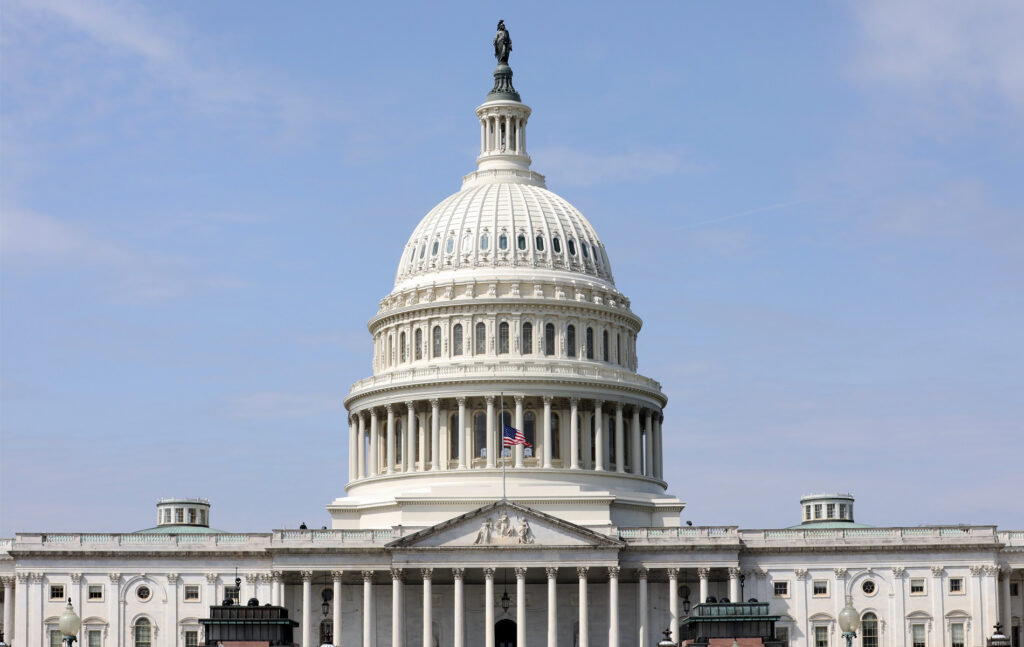
NASHVILLE (BP) – With Congress poised to pass a minibus package of funding bills on Friday (March 8), the Ethics & Religious Liberty Commission is celebrating the inclusion of several provisions, while lamenting the exclusion of others.
The bipartisan minibus package contains six of the 12 required appropriations bills which fund the government.
The House passed the minibus package on Wednesday (March 6), and the Senate is expected to vote on the bill ahead of Friday’s government funding deadline. The package then goes to President Biden to sign, thus avoiding an impending government shutdown.
Congress had previously failed to pass any of the 12 necessary appropriations bills since the fiscal year ended on Sept. 30of last year. Instead, Congress passed a series of continuing resolution bills, extending the deadline for funding the government while the House and Senate worked on their versions of the 12 bills.
Allison Cantrell, policy associate for the ERLC, said although many of the entity’s highest policy priorities are still to come in the remaining six bills, the current minibus offers a mixed bag of pros and cons.
“By engaging in federal appropriations negotiations, the ERLC seeks to ensure federal taxpayer dollars are not spent facilitating or directly funding morally reprehensible actions, such as abortions and ‘gender transitions,’” said Allison Cantrell.
“In the first minibus being voted on this week, we are glad to see that baseline pro-life provisions were retained but are disappointed that many new provisions that would expand pro-life protections and support a culture of life and human flourishing were ultimately excluded. We continue to encourage legislators to include additional and equally necessary life and religious liberty protections in the second minibus later this month.”
The six government departments funded by the minibus include:
- Agriculture, Rural Development, FDA and related agencies
- Commerce, Justice, Science and related agencies
- Energy and Water Development
- Interior, Environment and related agencies
- Military Construction, Veterans Affairs and related agencies
- Transportation, Housing and Urban Development and related agencies
ERLC Policy Director Hannah Daniel explained the entity’s main priorities to keep out of appropriations bills are any government funding going to an abortion provider, any funding of gender-transition procedures and policies that could implicate the consciences of medical professionals or taxpayers.
A few pieces of the minibus the ERLC deemed areas of concern include the removal of several provisions that were included in the House’s version of the appropriations bills, but were ultimately not included in the bipartisan minibus. These provisions would have restricted the FDA from allowing the mail-order sale of mifepristone (a drug commonly used for chemical abortions), prohibited the use of federal funding for gender transitions in the Military Construction budget, and prohibited federal agencies from implementing a regulatory rule that would allow expanded access to abortion services for veterans.
A couple included provisions that the ERLC supports are ones that prohibit the use of federal funding for abortion and prohibit the use of federal funding to violate conscience protections.
Daniel said these funding bills represent a simple yet important way the ERLC advocates on behalf of Southern Baptists.
“When we are doing advocacy on a daily basis, whether that’s appropriations or in other contexts and on other issues that we care about, we have a lot of tools in our toolbox that we can use to help lawmakers better understand the perspective of Southern Baptists,” Daniel said.
“We are here to communicate why these things matter to us and why they are important, not just for our communities, but also the broader communities in which we exist.
“As Southern Baptists, we really care about these issues of life, religious liberty, marriage and family, and human dignity, and seeing the flourishing of all of our neighbors (Jeremiah 29:7) – that is even reflected in appropriations.
“As a nation, our spending reflects what we care about. We want to see our spending as a nation – our taxpayer dollars – being used in a way that promotes good, God-honoring things. We can’t just sit on the sidelines. We have to engage in order to see lives defended, to hold onto important religious liberty protections, and to push back against bad policies.”
















